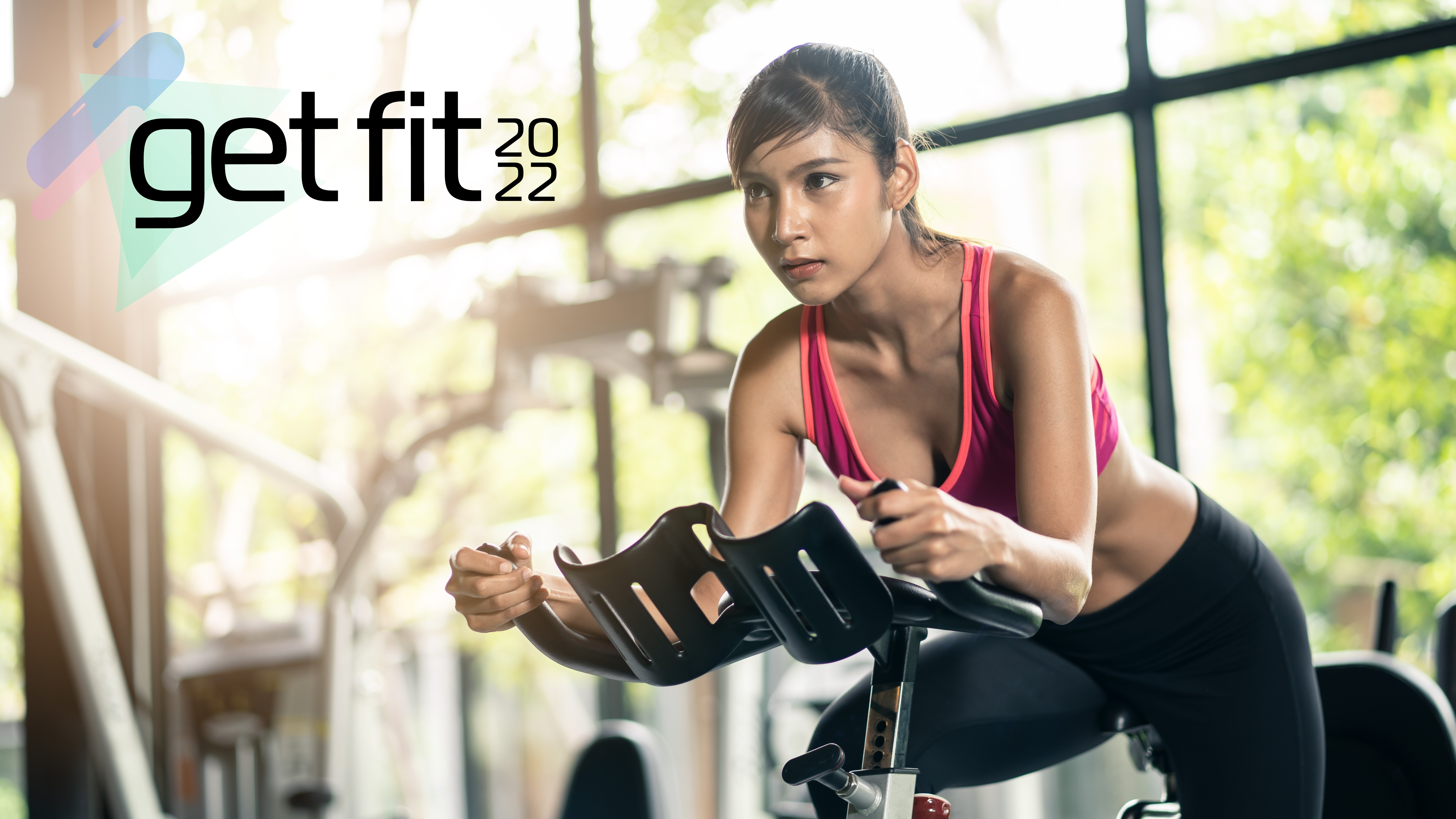5 great stationary exercise bike workouts for beginners
Sessions to help you achieve your fitness goals at home

Sign up for breaking news, reviews, opinion, top tech deals, and more.
You are now subscribed
Your newsletter sign-up was successful
There’s an endless stream of workouts that you can choose from on the regular, from dance cardio and running to weight lifting and cycling. Each of them comes with its fair share of benefits and challenges, but if you’re looking for a fitness modality that’s guaranteed to get your heart rate up and make you smile, look no further than indoor cycling.
Not only does indoor cycling help to boost cardiovascular fitness, helping your heart and lungs to work better overtime, but it’s also non-impact. In other words, if you’re dealing with any injury that prevents you from your regular routine, tackling a few sessions on the bike could provide your body with the reprieve it needs, sans the impact forces.
There are lots of different indoor bikes to choose from, including turbo trainers that are used with your regular bicycle, spin bikes that let you pedal against different levels of resistance with an emphasis on speed, and smart bikes that can do both – accurately recreating the feeling of road cycling, or allowing you to take part in an intense spin session - and we're helping find your best option in our exercise bikes deals page.
“The spin bike is a great piece of fitness equipment because it offers a cardio workout but also strength building in the legs,” says Lauren Wilson, NASM CPT and Senior Master Instructor for CycleBar. “It’s also low-impact so it’s easy on your joints and doesn’t create a lot of wear and tear on the body.”
Ready to get into the saddle? Before you do, a few things to note: Firstly, most indoor bikes bikes enable users to ‘clip in’, or ride wearing cycling-specific shoes that secure directly onto the pedals. Clipping in will help you better utilize your muscles, and get more punch out of your workout.
Secondly, there are two things you can control on a spin bike: The resistance and the speed you’re moving your legs. Resistance is controlled by a small knob in between your legs. The less resistance, the faster your cadence – or speed – will be. This is often articulated in RPM – or rotations per minute. A faster RPM would be north of 75, whereas a slower RPM (with heavier resistance) could be between 40 and 65.
For a smart bike, you'll have a lot more options. Check the instructions to find out how to set your bike so you can adjust the resistance manually on the fly, but these have the advantage of being able to pre-program sessions ahead of time.
Sign up for breaking news, reviews, opinion, top tech deals, and more.
If you're really into not touching the knob and just focusing on getting down to pumping out as many watts of power as possible, you can connect most smart bikes to a platform like Zwift to get real-time resistance changes, or more powerful units will have screens onboard to allow you to build your own perfect workout.
Here, experts offer up cycling workouts based on your individual goals – or whatever flavor you’re in the mood for that particular day.
Your goal: endurance
The workout: Thirty minutes on the bike, fluctuating between 60 RPM and 80 RPM with medium to heavy resistance.
The expert says: “When you need to work on your endurance, rhythm-based cycling is the way to go,” says Dan Cooney, co-founder of Torrent Cycle. “Riding to the beat of the music makes even the longest workouts go by in a flash and climbing to the perfect song is sure to bring out your best performance.”
Your goal: hit the hills
The workout: Thirty minutes on the bike, with four ‘hill climbs’ mixed in. Each hill climb can last 3:00 to 4:00 (or the duration of a single song on a playlist), and the resistance should be high. After the interval, flesh out the legs by lowering the resistance and bringing up your cadence, north of 90 RPM.
The expert says: “There's no greater satisfaction than getting to the top of a hill after a long, arduous climb, but training for hill climbs can be straight-up daunting,” says Cooney. “As the hill continues, you'll find your body starts to move with the rhythm. You control the amount of resistance you add, which allows you to build up to heavier and heavier climbs as you get stronger.”
Your goal: heart-pumping intervals (1)
The workout: Five minute warm-up to get the muscle warm, followed by a descending ladder of intervals – all performed at light-to-medium resistance:
The expert says: “For some, an all-out interval could be between 75 and 100 RPM,” says John Fawkes, NSCA-certified personal trainer and certified nutritional counselor. “The more advanced you are, the higher you can up the bike's resistance levels as well. HIIT workouts like this give you a ton of bang for your buck. When done right, you only have to spend up to 20 minutes exercising to reap the benefits. It's a great way to introduce folks to consistently working out when the time commitment seems overwhelming.”
Your goal: heart-pumping intervals (2)
The workout: Ten-minute warm-up, followed by four bursts of 30-second effort with light resistance – resting 30 seconds between each. Then, perform 20 bursts of 30-second efforts between 90 and 110 RPM, with medium resistance.
The expert says: “If you have to, shift into a lighter gear to maintain the RPM in the second burst of intervals, that’s OK. Just don't let the intensity of the interval drop,” explains Wilson. “By breaking up the power intervals into short 30-second segments, with a relative short recovery, you are able to optimize your VO2 max with better results and improved muscle recovery time. Plus, your endorphins will spike and you’re likely to experience mental clarity and improved energy.”
Your goal: to have some fun
The workout: Five-minute warm-up to get the muscle warm, followed by a four-song playlist of including your favorite upbeat tracks. Try to select songs that vary in RPM, so – think one that’s in the 60s, one in the 80s, one in the 90s, and one around 105 or above!
For the chorus of each song, ride out of the saddle. When you get to the last song, simply pick up your cadence as fast as possible during the chorus, keeping it in the saddle.
The expert says: “If you actually enjoy your workout, you’re more likely to keep with it,” says Emily Abbate, an ACE-certified trainer and former spin coach at Swerve in New York. “Try your luck at a different position by taking it up and out of the saddle during the chorus, making sure to keep your shoulders back and down and your core engaged. Tightening up your core will lessen your bounce between pedal strokes, making everything feel more fluid. In the last song, run it home, and be proud of yourself for showing up to the bike in the first place.”
This article is part of TechRadar's Get Fit in 2022 series – a collection of ideas and guides to help get your new year's health goals off to the right start, whatever your current level of fitness.
- The best fitness trackers you can buy today

Emily Abbate is a freelance writer, certified trainer and run coach, and host of the podcast Hurdle. You can find her work in GQ, Shape, Runner’s World, and other health and fitness publications. She is a self-motivated, social media-savvy writer and editor with more than a decade of constructing brands from the ground up.